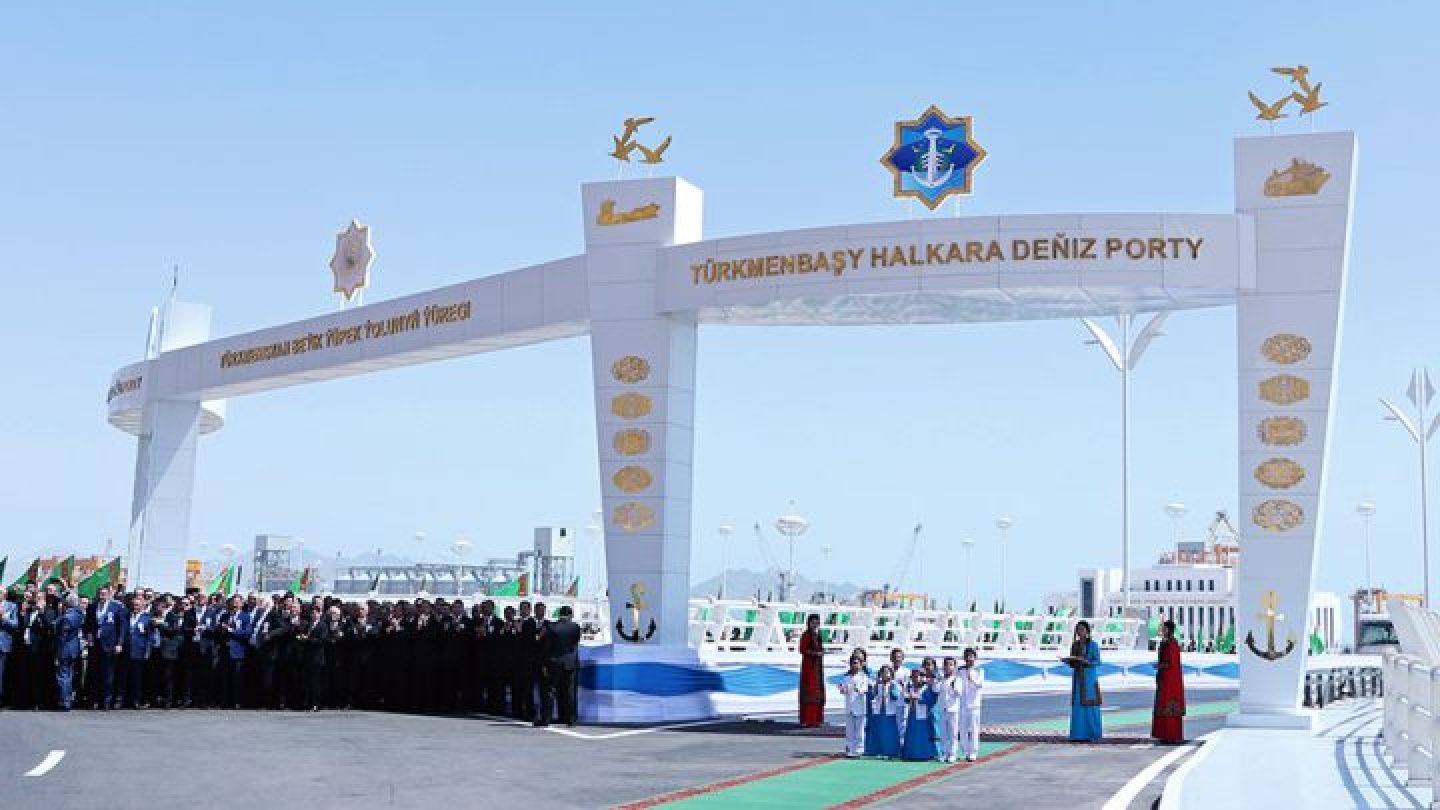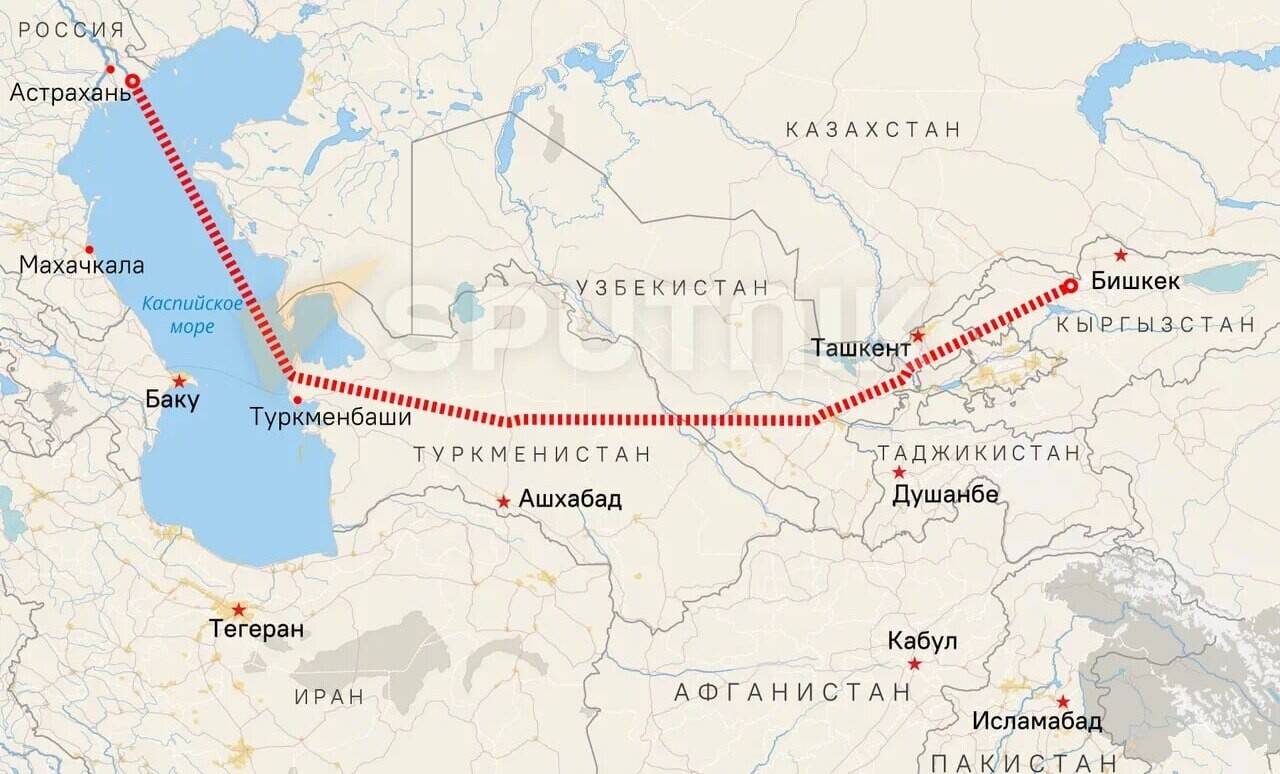Why is Russia Building a New Transport Corridor bypassing Kazakhstan?
 Source: turkmenportal.com
Source: turkmenportal.com
The other day, the Governor of the Astrakhan region of the Russian Federation, Igor Babushkin, announced the development of a southern transport corridor that will connect the south of Kyrgyzstan with Uzbekistan and Turkmenistan and stretch from the port of Turkmenbashi on the Caspian Sea north to Astrakhan in Russia and further to St. Petersburg. This will allow Kyrgyzstan and Uzbekistan and other southern countries to trade with Russia bypassing Kazakhstan.
An Orda correspondent discussed with economist Madiyar Kenzhebulat why such a decision has been made by these countries and what impact it could have on the economy of Kazakhstan.
The economist believes that there are several reasons for this. And the Kazakh leadership's latest statements that it intends to strictly comply with economic sanctions against Russia and will not allow dual-use goods through its territory were only a catalyst for the process.
"But in fact, the problem of transporting goods to Russia through the territory of Kazakhstan has existed for a long time. A few years ago, I personally talked to Kyrgyz entrepreneurs and they complained that their cargoes were constantly stuck at the Kazakh border, subjected to lengthy checks, and because of this they were late on time and incured losses. Moreover, according to them, Kazakhstani customs officers often detain goods for some far-fetched, artificial pretexts. Uzbek businessmen probably have a similar situation."
At the same time, trucks get stuck both on the southern borders of the Republic of Kazakhstan and on the northern Kazakh-Russian border. In turn, the Kazakh authorities justified their actions by the fact that there is a large flow of illegal smuggling from China through the country, which must be stopped.
Russia did not like the situation with constant delays either. Therefore, Moscow and its partners in Central Asia have been looking for alternative routes. Just as Kazakhstan is now looking for alternative oil transportation routes bypassing Russia.
"However, this alternative route is likely to transport goods that will then go to the European part of Russia. And those that are waiting in Siberia and the Far East will be too expensive to deliver through Astrakhan. Although this is not accurate, given the complaints of some Kyrgyz businessmen that their cargo is idle on the southern and then northern borders of Kazakhstan for a total of up to 20 days. For many, this is unacceptable,"
says Madiyar Kenzhebulat.

The political situation also plays a role. The government of Kyrgyzstan is now turning away from the West towards Russia, increasing pressure on NGOs that exist at the expense of American and European support.
Russians are now very active in Uzbekistan. They are building a nuclear power plant, investing in gas infrastructure, launching light industry enterprises, and opening branches of Russian universities. Russian oligarch of Uzbek nationality, Alisher Usmanov, who is rumored to be a relative of Uzbek President Shavkat Mirziyoyev, is diligently helping them with this.
"In general, Russia is currently developing its global project – the North-South transport corridor, which will stretch from the coast of the Indian Ocean to the Astrakhan port through Iran and the Caspian Sea. This project requires huge investments, but it will noticeably accelerate the movement of goods from India, Pakistan, and other southern countries, which are now being transported across the Mediterranean and Black Seas to the port of Novorossiysk. But most importantly, it will be possible to supply the same dual-use goods through it, as Iran does not fear Western sanctions."
The Russian authorities thereby intend to increase the capacity of the Caspian ports.
In case of the successful launch of this project, Kazakhstan's economy may lose part of the income that came, firstly, from customs duties, and secondly, from the travel expenses of truckers. Indeed, the latter refuel at gas stations, stay in hotels, eat in canteens, and make purchases at markets and stores. But on a global scale, the economy of the Republic of Kazakhstan will not suffer much, Madiyar Kenzhebulat predicted.
Original Author: Danil Utyupin
DISCLAIMER: This is a translated piece. The text has been modified, the content is the same. Please refer to the original article in Russian for accuracy.
Latest news
- President Toqayev Sends Nazarbayev Birthday Wishes
- Toqayev Appoints New Ambassadors in Series of Diplomatic Changes
- Unidentified Object Resembling Drone Found in Atyrau Region
- Trump and Zelenskyy Discuss Air Defense Needs
- Rapper Qurt: Wife Withdraws Statement in Court
- Head of Azerbaijani Cultural Autonomy in Moscow Region Reportedly Loses Russian Citizenship
- Defense Secretary Hegseth Paused Ukraine Weapons Shipment Despite Pentagon Assessment — NBC
- Prosecutor General's Office Confirms Detention of Kozhamzharov's Associate in Torture Case
- State to Scale Back Role in Competitive Sectors
- Uzbek Banker Kidnapped in Paris
- Former Financial Police Officials Reportedly Detained, Case Concerns Torture
- Progress MS-31 Launches from Baikonur Carrying Fuel, Water, and Scientific Cargo
- Two Men to Face Trial for Homicide of Missing Atyrau Woman, Body Not Found
- Russia Launched Massive Strike on Ukraine Following Trump–Putin Call
- Rapper Qurt Accused of Abuse by Wife
- Pavlodar Region: Rescuers Seek Lower Retirement Age Amid Strain of Risky Work
- Businessman Vagif Suleymanov Detained in Moscow
- Kashagan Field Reaches One Billion Barrels of Oil Extracted
- Lenin Street in Osh Renamed After 19th-Century Kyrgyz Leader
- New Uranium Plant Launched in Turkistan Region with French Partnership

